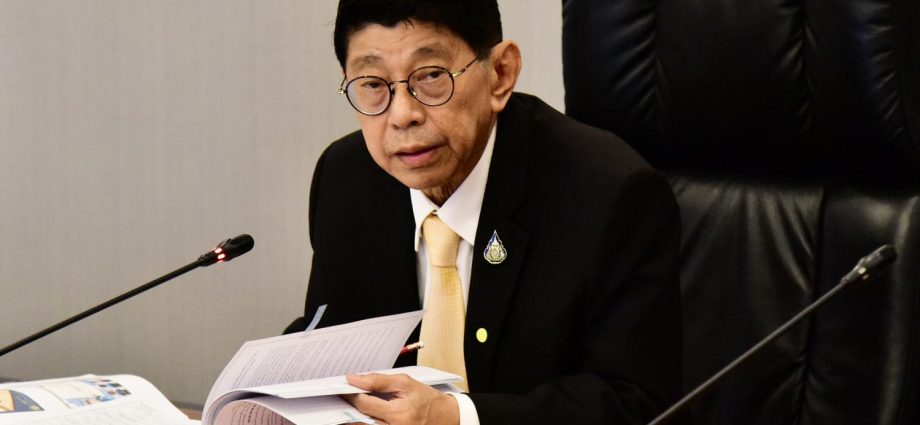Proposal to pay for poll travel panned

Deputy Prime Minister Wissanu Krea-ngam has put the brakes on a Senate committee’s proposal for 500-baht travel payouts for voters.
Mr Wissanu, who is the government’s legal expert, said on Tuesday that such a proposal is not permitted by law.
Many related laws have to be amended if the proposal is to go ahead, he said.
Asked if it is possible to implement the proposal, Mr Wissanu added: “This is unheard of.”
The Senate committee on political development and public participation proposed that voters be given 500 baht each in travel expenses in the hope that it would encourage a greater turnout and help combat vote-buying in the next general election.
The proposal was part of a report on how to ensure fair and fraud-free elections submitted by the committee to a Senate meeting on Monday.
If the proposal materialises, about 20 billion baht would be needed for a turnout of 40 million eligible voters.
The committee has suggested the Election Commission (EC) or relevant agencies pay the suggested 500 baht per voter.
Sub Lt Wongsayam Pengpanichpakdi, the committee’s secretary, said on Monday that in the provinces, some voters have to travel a long distance to polling stations, and that can cost 80-100 baht per person.
Jade Donavanik, a former adviser to the Constitution Drafting Committee, said the proposal violates the constitution, which stipulates that people are bound by duty to go to the polls and vote.
However, Charnnarong Buristrakul, chairman of the Khon Kaen Chamber of Commerce, on Tuesday welcomed the proposed travel payout.
He said the private sector and voters agreed with the proposal as it would serve as an incentive for voters to go to the polls and help reduce voters’ travel costs.
“Many people leave their home provinces and work in other provinces where they are not entitled to vote,” Mr Channarong said.
“In each election, they have to return to the constituencies where they are registered to vote, and they have to shoulder travel expenses,” he said.
“So some decide not to return home and give up their voting rights.”
Mr Channarong further said the proposal would encourage voter participation as well as stimulate economic growth as more than 20 billion baht would circulate in the economy.
He also said the government should have no problem paying out the money as several economic stimulus schemes can serve as guidelines.
Such stimulus schemes include the “Khon La Khrueng” co-payment scheme and the state welfare scheme, which already have the details of registrants, he said.
Meanwhile, the cabinet on Tuesday approved a budget allocation of 5.9 billion baht as proposed by the EC for holding the coming general election, said Chalermphol Pensoot, director of the Budget Bureau.
He said the Budget Bureau would meet with the EC to further discuss election costs as the number of constituencies and the existing budget held by the commission will need to also be taken into account.
“It may actually cost no more than 5 billion baht to hold the election,” Mr Chalermphol said.
According to the EC, that’s higher than the 4.2-billion-baht allocation for the 2019 general election because the coming polls will see the number of constituencies increase from 350 to 400 with the use of two ballots.
The number of staff at each polling station will also increase from five to nine.
The EC plans to hold the next general election on May 7, assuming the House of Representatives completes its four-year term on March 23.
However, if the House is dissolved before then, an election date will be set at least 45 days after, but not exceeding 60 days from the day of the royal decree on the general election being enacted.
In related news, Chartthaipattana Party leader Varawut Silpa-archa, who serves as Natural Resources and Environment Minister, said his party would field election candidates in about 100 constituencies.
Mr Varawut said the party aims to secure at least 25 House seats in the coming election.

